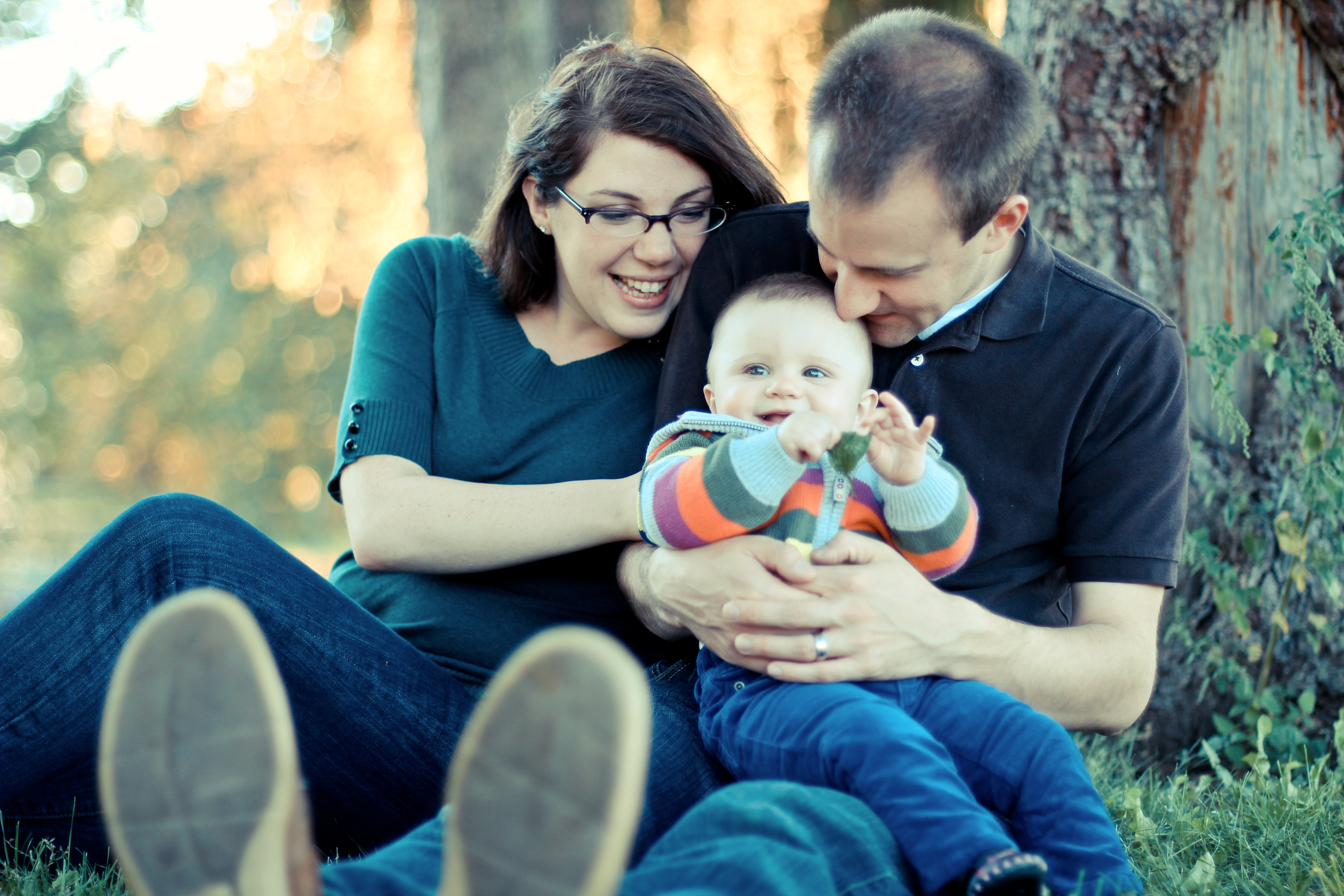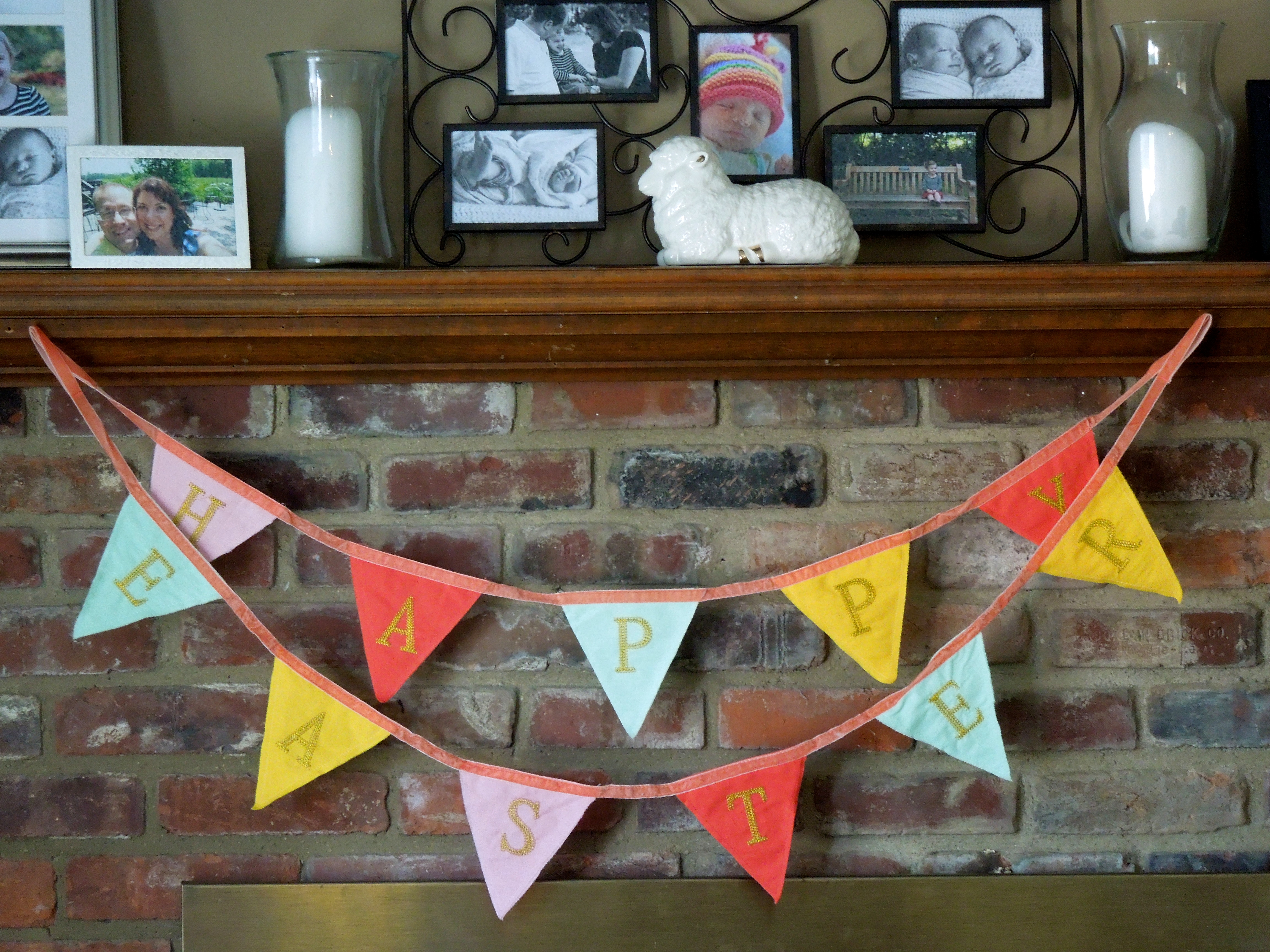It’s taken me a while (almost 2 years) to finally feel ready to really talk about my breastfeeding experience on the blog. I wrote a bit about it here when I was in the trenches. Recently I’ve read a few people’s reflections on the tremendous amount of pressure that is put on mothers to have all natural births, breastfeed exclusively for a year or more, co-sleep, use cloth diapers, never put the baby down, make all the baby food from scratch using only organic ingredients, etc. etc. etc. Those posts, and their experiences, made me finally feel ready to talk about mine.
I was blindsided. While pregnant with my now 2 year old daughter, I asked my high risk OB about breastfeeding. I have PCOS (polycystic ovarian syndrome), and had heard that it might make breastfeeding a challenge. When I asked her, she said, “Most likely it won’t be a problem for you, especially since you are on metformin and have had a healthy pregnancy”. I didn’t think too much about it after that.
I had read enough to know that formula was basically evil and that if I gave it to my baby she would become a fat, sick, moron in short order. I had the number for La Leche League on hand, as well as The Nursing Mother’s Companion, which I had flipped through in order to be ready. In addition I had a store-bought hand pump, in case I needed to pump a little “in an emergency”. I knew I would exclusively breastfeed for at least six months, but probably more like a year. Obviously I knew it all.
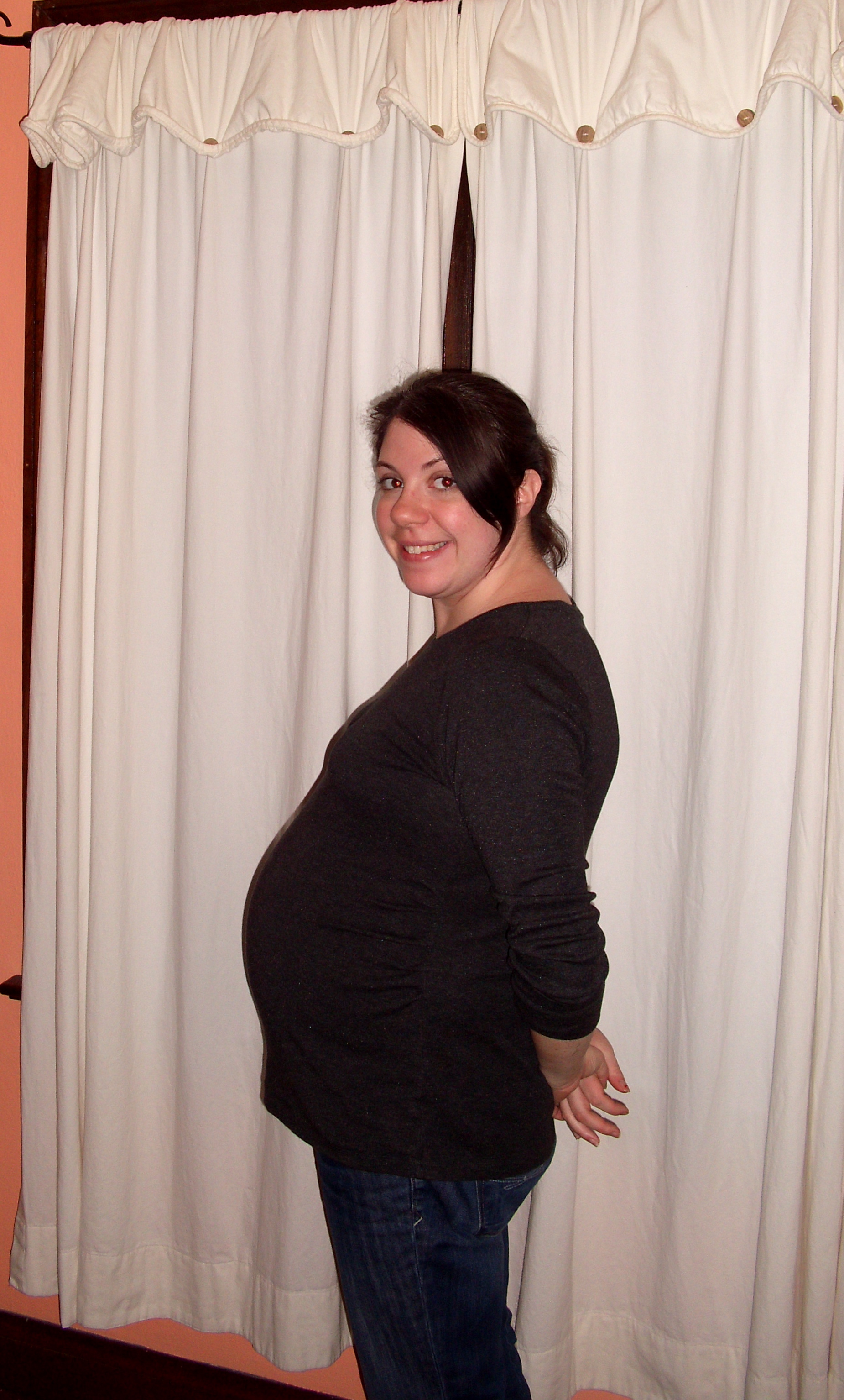
Then I had a baby. A real, live crying baby. One that took 30 hours to be born. One who required three hours of pushing and forceps in order to make it out. She was perfect. Until she tried to nurse.
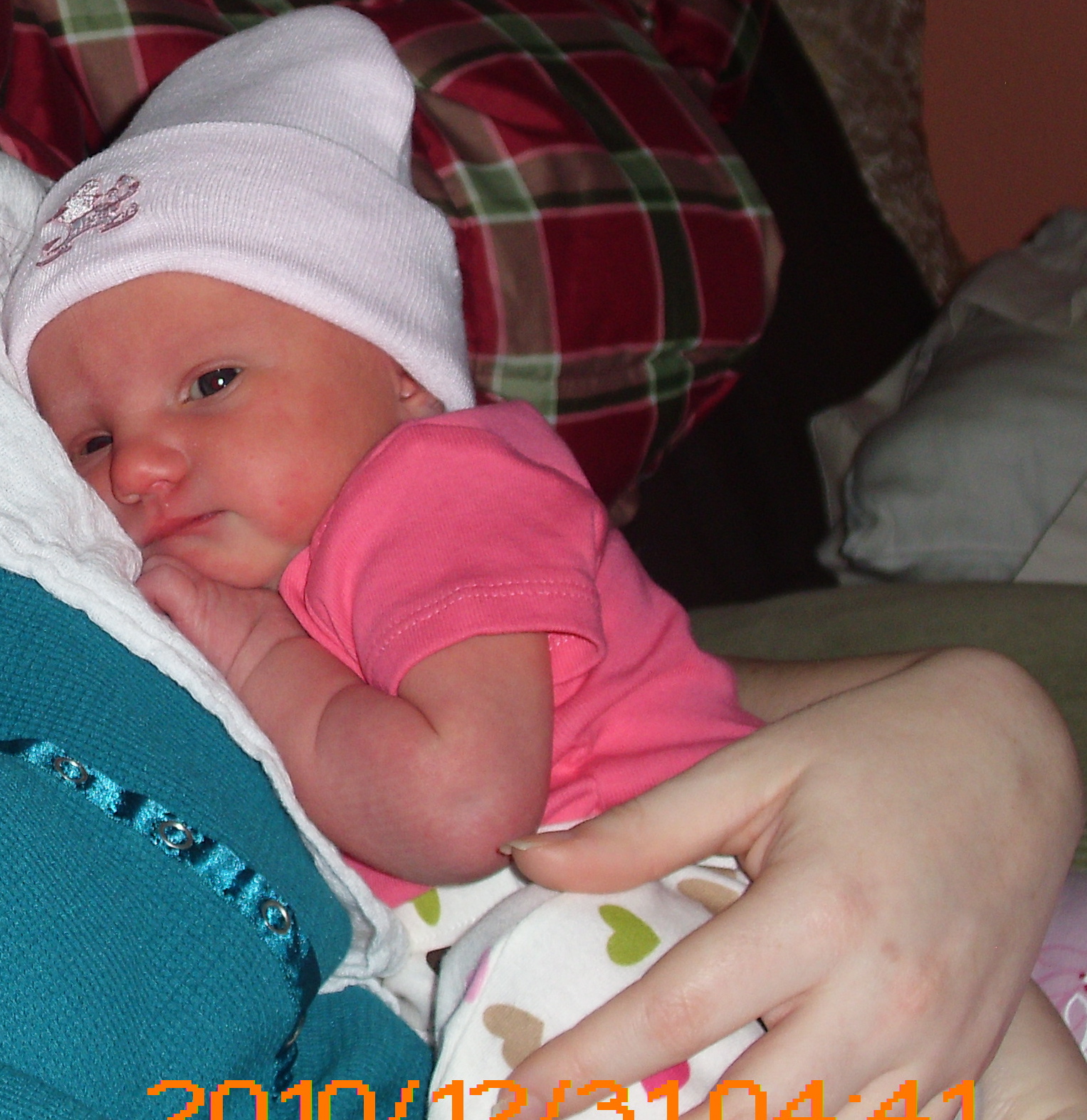
Having been born at 5:30 in the evening, the hospital lactation consultant had gone home for the night. She only nursed once that night, tired from the ordeal of being born. It hurt, but I figured that was just the discomfort of getting used to a person attached.
The next day an LC came in, took at look at our latch, and said it looked fine. No problems. I wondered, but didn’t say anything. Fast forward to the next morning, one in which I got no rest at all, had a baby attached painfully all night, and cracked, raw, bloody nipples to show for it. A second, more experienced LC walked in, took one look at my nipples, opened Maggie’s mouth, and said,
“Yep. She’s tongue tied.” She gave me a nipple shield, saying, “it’s the only way you’ll make it until your nipples heal and you get her frenulum clipped.”
It helped a little, but not very much. Then I asked about nursing in bed, and we tried. She frowned at me and said, “Well, the shape of your breasts plus the tongue tie make it very hard to nurse while lying down. The football hold or another sitting up position will be best.”
By the time we left the hospital that night, our “no pacifiers for at least a month” rule was long forgotten, and our baby, who had been crying all afternoon for my non-existent breastmilk was sleeping peacefully in the car on our way home.
I was worried because I noticed that nothing was coming out. I had read enough to know that the “liquid gold” colostrum was supposed to come in by about 2 days. So by day three, when I didn’t see anything at all after a nursing, combined with the fact that she was wanting to nurse every 45 minutes around the clock, I began to panic. I suspected that she was getting very, very hungry. My mother in law ran out to the store and got some formula in the middle of the night in case we got desperate. We did. Cut to our 4 day old baby, who had actually stopped crying, and was just lying in my arms. She hadn’t had a wet diaper in 8 hours, and wasn’t very responsive. On day 5 I finally saw some of that “liquid gold”. In the meantime she had formula, which she sucked down quickly, immediately pooped and peed, and then slept for 4 hours. The poor, exhausted, hungry girl.
By the time Maggie was a week old, I suspected that I might have some post-partum depression. I cried at 6 pm every night. I cried because another day had passed, getting closer to the time I’d be alone with this crying pink thing, when all my help would be gone. I cried because breastfeeding hadn’t gotten easier, but was just as painful, stressful, and irritating as it had been the day before. I cried because another night would be going by with maybe 3 hours of sleep if I was lucky. I cried because my 4th degree tear hurt but I didn’t have time to do the healing I needed, because I had a tongue-tied baby who wanted to nurse every hour, for half an hour, and I had to sit upright. I cried because then I had to pump, giving me about 10 minutes to pee, eat, or shower. I cried because I missed my husband and thought my life was over. I cried because I couldn’t stop crying.
Far from being this lovely bonding experience between me and my baby, breastfeeding was a source of stress, and eventually resentment. I resented having to sit half-naked in my house with a baby attached to my sore, battered body, always wanting something I could not give her. By this point any illusion of “exclusively breastfeeding” was out the window. I would nurse her for 20 minutes on each side (because tongue-tied babies with PCOS mothers nurse slow as hell), then finish the feeding with a bottle of formula. After that, I pumped. I pumped for 30 minutes and was lucky if I got 2 or 3 ounces. Some days I didn’t get anything at all.
I woke up one day when she was about 8 weeks old, took a look in the mirror, inhaled deeply and said, “I’m done.”
And that was it.
Instead of nursing her that morning, I held her close and gave her a bottle of formula. And the most amazing thing happened; We were both happy. She drank the formula, wrapped in a pink flannel blanket and snuggled up close to my heart, and when she finished, no crying for the more I couldn’t give her, just contentment and sleep. I smiled for the first time in weeks, and ironically, felt that loving bonded feeling with my baby more strongly than I had before.
I fell in love with motherhood at the end of a bottle.
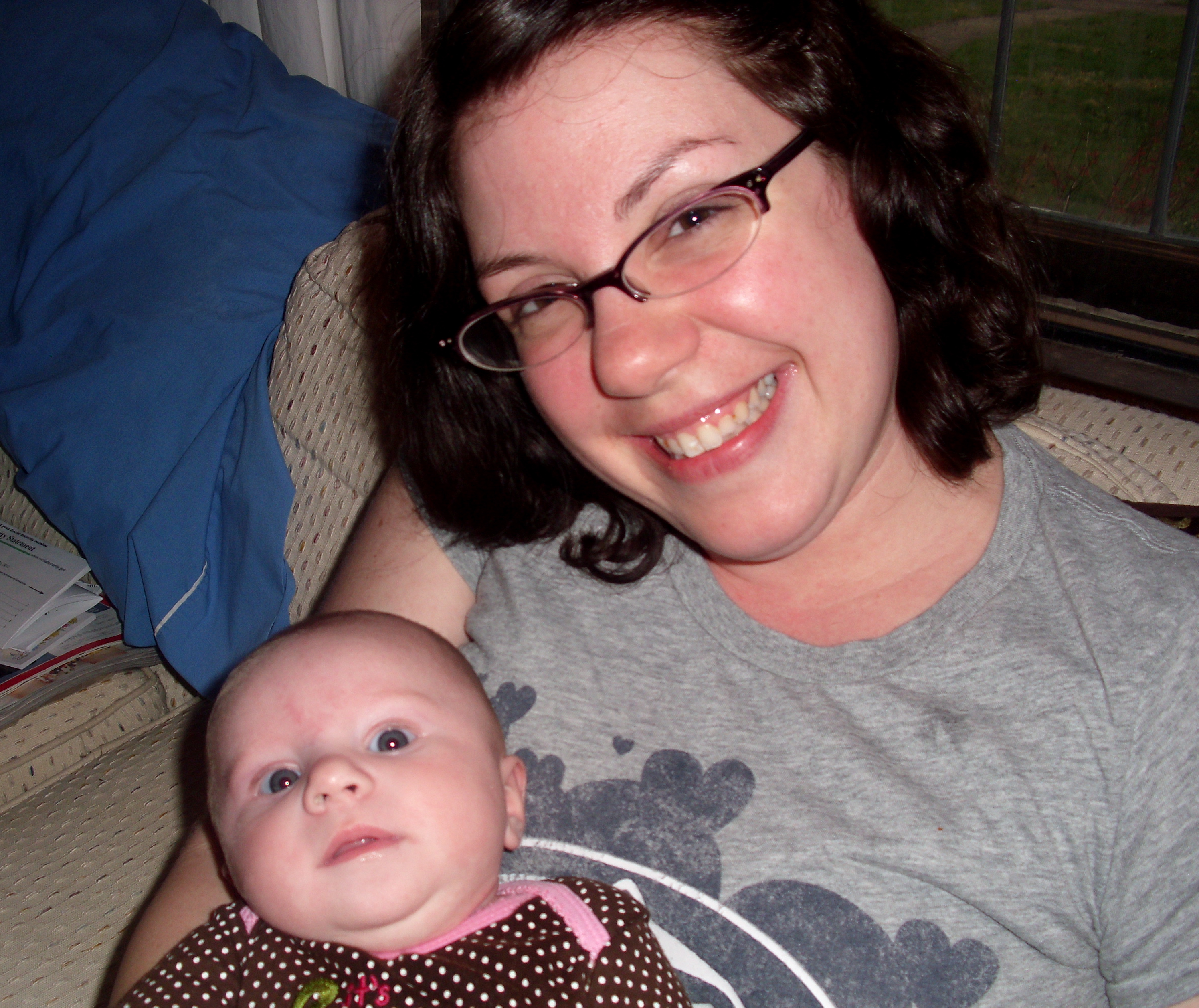
I still struggled with depression, though it did significantly lessen when my fertility returned at 10 weeks post-partum. I woke up one morning, 2 weeks after stopping breastfeeding, had started cycling again, and felt like myself for the first time since she was born.
In other words, stopping breastfeeding when I did was the best thing I could have done for my family.
And that’s when I learned one of the fundamental truths of parenting: my experience is not normative, and neither is yours.
I had a medically nessecary induction, two epidurals, a vaginal birth, and I exclusively formula-fed my baby from 8 weeks on, but we did not follow a strict schedule. We used a combination of cloth and disposable diapers. I wore her in a sling or carrier sometimes, and sometimes she sat in a bouncy seat or swing, both of which she loved. We did not co-sleep, other than a handful of times when she was a newborn. We followed the vaccination schedule of our trusted pediatrician, and she ate pureed baby food, some which I made, some which I bought.
And after that February day when I embraced the bottle, I didn’t feel one minute of guilt about any of it. Because I shouldn’t. You shouldn’t. There isn’t any one right way to be a mother, not when these are the decisions you are wrestling with. Now, I may not have felt any guilt, but I did feel judgement, whether perceived or actual it’s hard to tell this far removed. The judgement I felt particularly because in this Catholic mommy blogosphere, it’s all “crunchy”, all the time. In fact, of the Catholic women I knew at the time who had biological children, I only knew one other woman who had used formula.
What I learned is that it’s not a sin to use formula, a stroller, or decide not to make all your baby food from scratch. The fact that my breasts didn’t work they way they should, and I wasn’t willing to move heaven and earth to try and make them do so, is not a commentary on my ability or love as a mother. It doesn’t make me any less or more of a mother because I made different choices than you did. And it doesn’t make you any less or more of a mother than I am because you made different choices.
Every family, every mother and new baby are a unique constellation of personalities, circumstances, and bodies. That’s why I won’t say that I’ll never breastfeed again. If we’re blessed with another baby, of course I will try again. That baby might not be tongue-tied. I might have better results with a different combination of factors. But if it doesn’t work out, and I choose to use formula again, I won’t make the mistake of tying my identity as a mother up in these choices, which at the end of the day, pale in the shadow of our choice to love our babies, even from the end of a bottle.
If you are reading this today and carrying the heavy burden of judgement (perceived or actual) about your parenting choices, I’m inviting you to lay them down. Be gentle with yourself. Take a look in the mirror, breathe in deeply, and remind yourself, “I am a good mother.”
